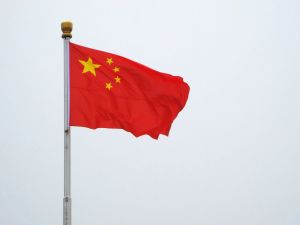The research from Charles Sturt University indicates that the 'pollution haven' argument is an inappropriate argument to be used against the introduction of pollution abatement measures, such as the carbon tax, in developed economies.
In a paper published in the International Journal of Economics and Business Research, Professor of Economics in the CSU Faculty of Business, John Hicks, and co-researchers, analysed input-output tables and data on energy consumption for China from 1995 and 2005 to investigate the link between China’s spectacular trade performance and its environmental impact.
"Between 1995-2005, China’s production and exports grew at an average 20 per cent per annum, and its share of world merchandise trade rose from just over 2 per cent to 13 per cent, lifting millions of Chinese out of poverty," Professor Hicks said.
"The results suggest that although China’s ever-increasing trade surplus is contributing to environmental degradation through the increased scale of energy demands, this deterioration has, to some extent, been offset by both trade-induced changes in technology, and by changes in the composition of trade.
"The results provide little support for the ‘pollution haven’ hypothesis and indicate that this is an inappropriate argument to be used against the introduction of pollution abatement measures in developed economies."
The authors note there has been vehement condemnation of the carbon tax introduced in Australia, a relatively rich country.
Opponents of a carbon tax argue that any reduction in world environmental degradation coming from Australia will be relatively small, and that polluting industries that are forced to close down will simply set-up overseas in usually 'poorer' countries where environmental controls are less challenging, resulting in no change in overall world pollution.
"This argument assumes that the countries to which the polluting industries might shift are populated by peoples that are so different from Australians that they have no desire for fresh air and clean water," Professor Hicks said.
"This assumption is, of course, nonsense.
"A healthier environment is something the people of every country increasingly demand as their income grows. However, countries are at different stages of development and therefore have different levels of income to share among their members.
"Countries with higher levels of income per head are more willing and able to purchase improvements in the environment at the cost of slightly reduced production, as might result from the introduction of a carbon tax. If polluting industries depart Australia as a result of the carbon tax, Australia’s contribution to world pollution will have been lowered.
"Of course, this will not result in any change to total world pollution if these companies simply set up in poorer countries and export back to the wealthier countries, and nothing else changes. But changes are occurring, and these changes need to be taken into account."
Professor Hicks and his colleagues argue these changes include the imposition of environmental protection measures in the countries to which the polluting industries might choose to migrate. Such measures might not match the actions being undertaken in the wealthier countries, but they are still positive steps toward environmental improvement and will encourage the adoption of more environmentally-friendly technologies than had previously been applied in the poorer countries.
Such measures may not be enough to prevent the polluting industries from wealthier countries moving to poorer countries, but they are likely to have the effect of encouraging the demise of existing, more highly polluting industries in the poorer countries (the resources of which will be transferred to newly-arrived operations).
It is also likely that the latest more environmentally-friendly technology will be adopted when these industries set up in their new location, making them less polluting than they had been previously.
Finally, the economic growth in the poorer country stimulated by the expansion in exports from the newly-arrived industries back to the wealthier countries will give a further impetus in the poorer country to adopt even stronger pollution abatement policies. The net impact of these changes will in fact be a reduction in world pollution levels.
"Evidence from China indicates that this is exactly what has been happening there," Professor Hicks said.
"Chinese exports have grown enormously and this increased scale has brought with it increased pollution. But this increase is about 50 per cent less than it could have been if there had not been a take-up of the latest production technology.
"Further, the change in composition of China’s exports that has accompanied this export growth has resulted in a shift to exports that are less pollution intensive than was previously the case.
"Despite this, protectionists in the West actively seek to impose trade restrictions on Chinese exports on the grounds of poor labour and environmental standards. Our results, based on the Chinese trade data and input-output table, clearly demonstrate an improvement in Chinese production technology which is less pollution intensive than it was in the past.
"Therefore, any protectionist measures to limit Chinese exports will lead to welfare losses not only in China but also in developed countries."
The authors conclude that because China’s human capital is expected to grow strongly over the next decade, it is expected that China’s pollution will decrease.
Under such circumstances, developed countries like Australia should be encouraged by the fact that optimally raising their own pollution abatement measures (for example, by the introduction of a carbon tax) will not result in a pollution haven outcome, but will, on the contrary, contribute not only to a reduction in pollution domestically, but also to a reduction in pollution in China and in the world as whole.







-160x160-state_article-rel-cat.png)


-160x160-state_article-rel-cat.png)



-160x160-state_article-rel-cat.png)
-160x160-state_article-rel-cat.png)
-160x160-state_article-rel-cat.png)



